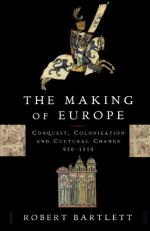|
This section contains 2,411 words (approx. 9 pages at 300 words per page) |

|
Two Revolutions. The French Revolution of 1789 and the Industrial Revolution had major repercussions in the modern era, not only on political and economic history but also on European family and social life. The French Revolution popularized ideas of human equality and democratic political participation. The Industrial Revolution profoundly altered the ways in which humans produced and consumed goods. It also fostered the rise of the middle class, the primary purchasers of these new ready-made goods. This class—which included merchants, bankers, professional people, tradesmen, and owners of small factories —lived in cities and towns and was generally less prosperous than members of the nobility but more wealthy than urban artisans. Furthermore, unlike successful nonaristocrats of the past, middle-class finances were not linked to landholdings. Instead, the prosperity of the middle class, or bourgeoisie, was tied to the Industrial Revolution, which they supported through investment of their...
|
This section contains 2,411 words (approx. 9 pages at 300 words per page) |

|



